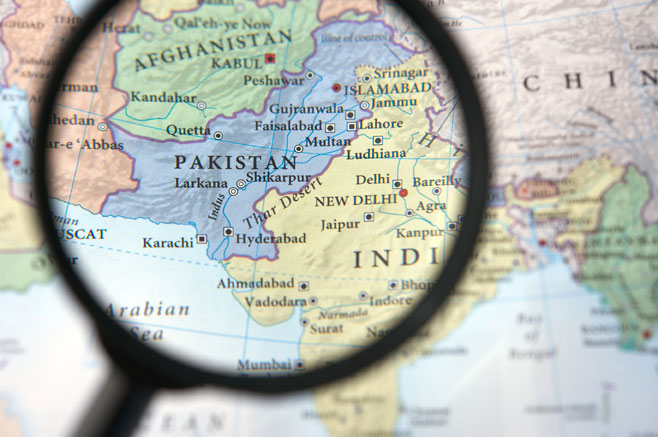It doesn’t matter who wins. Whether President Barack Obama returns to the White House for a second term, or Mitt Romney is sworn in, the US foreign policy on Pakistan is unlikely to change.
“It is a state-to-state arrangement,” said Qasim Zia, an influential member of the ruling Pakistan People’s Party, in a telephone interview. “Individuals do not matter.”
Obama’s policies, which saw American Navy Seals crossing into Pakistan to shoot dead al-Qaeda chief Osama Bin Laden in May 2011, as also an increased number of drone attacks leading to more than 2,000 civilian deaths, had damaged the Islamabad-Washington relations severely. The situation may not improve for Pakistan even if there is a change in leadership – in fact, some feel it may even worsen if Romney comes to power.
“The US doesn’t make policies whimsically,” said Tazeen Javed, a newspaper columnist and opinion leader in Pakistan. “Their policies are based on intelligence.”
A US tenure under Romney could even see harsher policies vis-à-vis Pakistan, according to Imran Ashraf, a Parliamentarian from the opposition party, Pakistan Muslim League (Nawaz). “A major section of the society perceives the Republicans as pro-war,” he said. “If he [Romney] wins, Pakistan can anticipate a plethora of drone attacks and violation of Pakistan’s sovereignty.”
Many in Pakistan had high hopes of Obama when he became the presidential candidate in 2008. Politicians such as Imran Khan of the Pakistan Teheek-e-Insaf party had publically supported him. But this support had eroded after drone strikes increased in Pakistan – a CNN report put the number of such strikes at 283 during Obama’s tenure, six times the number sanctioned by his predecessor George W Bush – and the public has largely been disillusioned by Obama and the US. For the first time in history, Javed said, people in Pakistan are unconcerned about the US elections.
“They couldn’t care less,” she said.
The deployment of US and NATO troops in Afghanistan as part of the US-led War Against Terrorism has had a major impact on Islamabad’s relation with Washington. In November 2011, 24 Pakistani soldiers were killed in a NATO air strike in Salala, which severely set back the relationship, and resulted in the eviction of CIA-controlled drones from the Shamsi Air Base in Baluchistan in southwest Pakistan. Pakistan Army Chief General Ashfaq Pervez Kiayani termed the Salala incident as an attack on the nation’s sovereignty.
For his part, former President of Pakistan General Pervez Musharraf indicated that he expected the US to continue with its current strategy, irrespective of the election outcome.
“There is nothing wrong with the policy,” General Musharraf said in an interview to Reuters. “If I look at the overall strategic policy, I think Pakistan and United States think alike.
“With new government, I don’t think there would be a policy shift towards Afghanistan or Pakistan but what we need is to develop a better understanding, more trust and confidence in each other.”
Romney’s views on drone strikes, however, are a concern for many, including politicians such as Ashraf, who view him as ‘pro-war’. Romney had said during a presidential debate: “Right now they [Pakistan] are comfortable with our using drones to go after the people that are representing the greatest threat. Therefore I would continue to do that. We have an agreement with the people that we need to have agreement with to be able to use drones to strike at the people that represent threat.”
This view, particularly coming after the Salala incident, has not helped allay fears in Pakistan. The drone strikes are seen by the Pakistan public and politicians as violations of human rights and an abuse of Pakistan’s sovereignty, and the Parliament of Pakistan had passed a joint resolution demanding the US stop such military actions immediately. The current Pakistan government is a coalition, headed by the Pakistan People’s Party. Elections are due in four months, and, according to Javed, Islamabad could well see another hung Parliament. “As there would be essentially the same faces in the Parliament, I predict a continuation in the foreign policy regarding US,” she said.
Qasim Zia was of the same opinion. “I don’t see a radical change,” he said. “I see a government of coalition and continuation of polices with America.”






